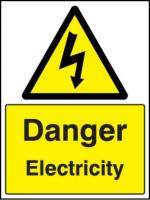|
This section contains 939 words (approx. 4 pages at 300 words per page) |

|
The word electricity comes from the Greek word, electron, meaning amber. Amber is a translucent, yellowish mineral made of fossilized resin. When rubbed with a cloth, amber becomes charged with static electricity. We now know that such electrostatic effects arise whenever a body has an excess or deficiency of electrons or protons. These effects usually accompany the transfer of electrons, such as occurs when two dissimilar materials are rubbed together. A fundamental rule of electrostatics is that bodies of like charge repel each other, and bodies of opposite charge attract each other. The Greeks described these attractive and repulsive electrostatic forces as electric force.
At the time of the American Revolution, little more was known about electricity than at the time of the Greeks. Benjamin Franklin was one of the first persons to experiment with electricity. In 1821, Hans Christian Orsted demonstrated that electricity and magnetism were interrelated. Later...
|
This section contains 939 words (approx. 4 pages at 300 words per page) |

|


